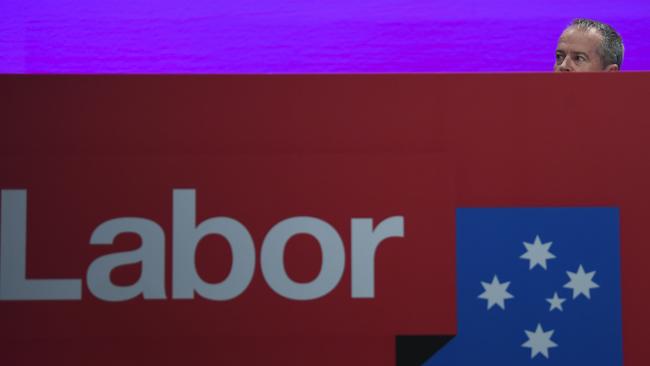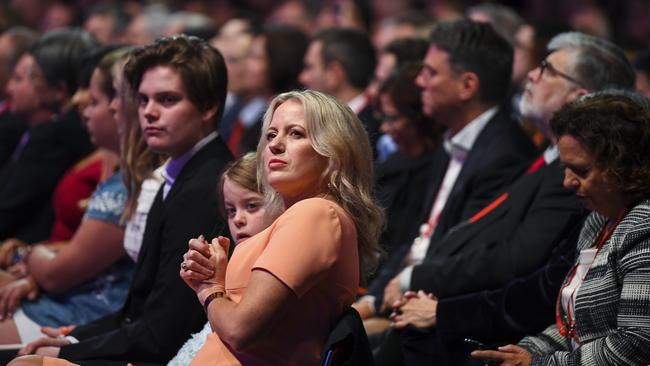
The 48th national conference of the Labor Party is progressing as well as the leadership could have hoped.
Bill Shorten gave a strong speech yesterday. Shadow ministers are on top of their issues. The mood among members is positive.
But, so far, there have been no formal votes on any issues. Nobody has proposed an amendment to the party’s platform or moved a resolution that has been opposed. The first of three days of the conference ended with everybody happy because nobody lost a vote.
The party is united. Shadow ministers have managed negotiations in back rooms with an eye to compromise. Delegates have shown discipline on the conference floor. The faction leaders are managing debates on the sidelines with a deft hand. Stage management is at a premium.
Of the 400 delegates to the conference, 397 who can vote, the right faction probably has a slim overall majority. The left, however, disputes this. But nobody really knows because there have been no votes. No raising of hands and no counting.

A party that encourages, allows and facilitates votes is a good thing. It is a sign of life. It is a sign of maturity if those who lose a debate are prepared to support the majority view. This is the principle of solidarity — the party and the union movement was founded on it.
Moreover, those proposing ideas need to be able to win support for them. Delegates want to hear the arguments. They want to be persuaded.
They want to be convinced. It is harder to make a compelling argument if you know you have already won it. Delegates don’t just want to be told which way to vote by faction whips.
Labor should not repeat what happened at the national conference in 2009 where, at Kevin Rudd’s insistence, debates were so stage managed that over the full three days — more than 20 hours of debate — there was not one single vote.
The faction bosses worked overtime to please Rudd. He got what he wanted — no controversy. But the party looked manufactured, stale and lifeless. This is a risk at this conference.
Labor delegates can sense the party might be in government within the next six months. They are hopeful and optimistic. They don’t want to blow it. But they also want to have more than just a say — they want to vote. The factions should loosen up a bit.




